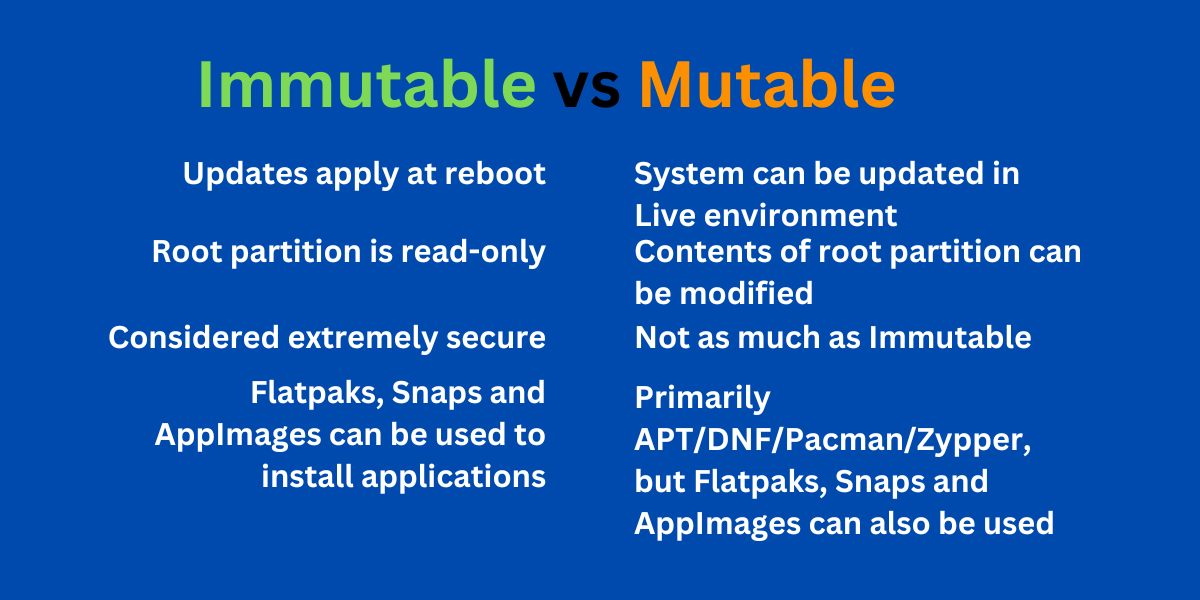this post was submitted on 13 Jan 2025
348 points (93.7% liked)
Linux
49244 readers
728 users here now
From Wikipedia, the free encyclopedia
Linux is a family of open source Unix-like operating systems based on the Linux kernel, an operating system kernel first released on September 17, 1991 by Linus Torvalds. Linux is typically packaged in a Linux distribution (or distro for short).
Distributions include the Linux kernel and supporting system software and libraries, many of which are provided by the GNU Project. Many Linux distributions use the word "Linux" in their name, but the Free Software Foundation uses the name GNU/Linux to emphasize the importance of GNU software, causing some controversy.
Rules
- Posts must be relevant to operating systems running the Linux kernel. GNU/Linux or otherwise.
- No misinformation
- No NSFW content
- No hate speech, bigotry, etc
Related Communities
Community icon by Alpár-Etele Méder, licensed under CC BY 3.0
founded 5 years ago
MODERATORS
you are viewing a single comment's thread
view the rest of the comments
view the rest of the comments

I heard both flatpak and immutability are obstacles to developers. How bad is it really?
I've had NixOS absolutely refuse to run some compiler toolchain I depended upon that should've been dead simple on other distros, I'm really hesitant to try anything that tries to be too different anymore.
It would be a problem without distrobox. Since that gives you a normal, mutable OS on top, you don't even notice the immutability.
And Homebrew. I'm a developer and I've done all my work just with Homebrew.
if you program using vscodium, do you install a separate vscodium in every distrobox?
Yep, I do currently. I only have one main distrobox.
I had a lot of issues on silverblue using vscodium as a flatpak, I think I will try installing it in a distrobox instead.
It should behave pretty much the same as a normally installed version. Hope it works well for you!
Yes, some toolchain expect you to run pre-compiled dynamically linked binaries. These won't work on NixOS, you need to either find a way to install the binary from nix and force the toolchain to use it or run
patchelfon it somehow.Or enabling nix-ld can often get such binaries working.
NixOS likely only refused to run it because you weren't running it in the Nix way. That's not a jab or anything, Nix has a huge learning curve and requires doing a lot differently. You're supposed to use devshells whenever doing development. If you want something to just work, you use a container.
Whatever issue you ran into most likely had nothing to do with NixOS being immutable, and was probably caused by the non standard filesystem hierarchy, which prevents random dynamically linked binaries from running.
I've never heard of flatpak and immutability being obstacles to developers, in fact I generally hear the opposite. Bluefin is primarily targeted at developers, and some apps, like Bottles, will only officially support the flatpak distribution because of the simplicity and benefits it brings over standard distro packaging.
Same issue, I still use nix on m'y laptop because it's neat as can be, but I have to admit developing on nix can be quite a hassle if you don't go it "the nix way", moreover some packages don't work as well because nix doesn't link binaries the standard way (zed editor for example)